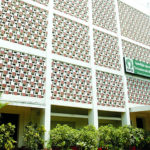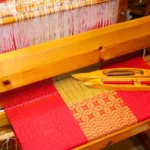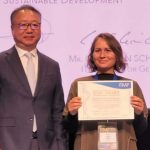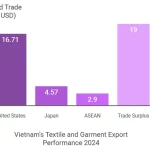| Preamble: New Textile Policy 2019 Gujarat The Textiles industry is the second most important economic activity in terms of employment generation after agriculture. lt is also one of the major sources of the country’s export earnings at 15%. lt’s share in industrial output in terms of value is estimated currently at about 7%. The whole industry is undergoing major restructuring and technology change, and therefore, the government both at central and state levels are considering measures to support the industry on which livelihood of several millions of people is dependent. Gujarat is an industrially robust state; be its geographic leverage owing to its ports or its fertile black soil producing highest amount of cotton amongst the lndian states. Gujarat as “Manchester of the East” as it was hailed earlier, has now established itself as the “Textile State of lndia”. Being largest producer of Man-made Fibre, Synthetic Fabric and Denim, Gujarat contributes about 12% of the country’s textile exports. Gujarat has the presence of the entire textiles and apparel (T&A) value chain, starting from availability of raw material, yarn production, fabric production, up to apparel and made-ups manufacturing units. Gujarat contributes 35% to lndia’s cotton production, and in case of man-made fibre production, the state’s share is nearly 50%. Almost 30% of lndia’s mill sector production of fabric comes from Gujarat. The state has more than 30 sanctioned textile parks, which is second highest among all the states. Gujarat also has significant number of medium and large textile processing houses. Moreover, Gujarat contributes about 40% ol the total fabric production from man-made fibres and about 25 per cent of the country’s technical textiles. Gujarat Textile Policy 2012 was operational till 3rd September 2018 and has proved to be a very successful scheme in terms of investment and employment generation. Sectors like Ginning, Spinning and Technical Textiles saw tremendous growth during Gujarat Textile Policy 2012. Garmenting, as found to be deserving separate attention with regard to various catalysing factors present in the state, has already been given a separate incentive scheme under the Gujarat Garment &Apparel Policy 2017 (October 2017). Looking to the above, the State Government analysed the existence of all segments in the textile value chain and identified gaps in certain segments. After careful consideration, Government has decided to come out with a new scheme to strengthen the value chain and extend support to Textile lndustry in the State of Gujarat. |
- The scheme called as ‘Scheme for Assistance to Strengthen Specific Sectors in the Textile Value Chain’, will be operative from September 4, 2018 to December 31, 2023.
- The scheme requires at least 85 per cent of the total manpower of an enterprise and at least 60 per cent of supervisory and managerial staff to be domiciled in Gujarat.
- The segments covered under the scheme include weaving, knitting, dyeing/printing, machine carpeting, technical textile, made-ups, composite units and other activities in the textile value chain such as embroidery, winding, sizing twisting and crimping.
- Garments and apparels have been excluded from the incentives scheme under the new policy as these two sectors have been given a separate incentive scheme under the Gujarat Garment and Apparel Policy, 2017 issued in October, 2017.
- Ginning and spinning have been removed out of the list of over eight manufacturing activities that will be eligible for incentives under various schemes.
- The scheme provides financial assistance through credit-linked interest subsidy of 6 per cent for MSME and 4-6 per cent for large enterprises with an upper ceiling of Rs. 20 crore per annum. A separate scheme for subsidy in power tariff allows up to Rs. 3 per unit for weaving and Rs. 2 per unit for other eligible segments. The eligibility period for these benefits is five years.
- The scheme for assistance in compliance of energy, water and environment conservation covers all existing units in operation for more than three years. The scheme provides 20% assistance on the cost of machinery with a ceiling of Rs. 30 lakh and 50 per cent assistance for audit fees with a limit of Rs. 1 lakh. The benefits can be availed once in two years during the operative period of the scheme.
- For technology upgradation and modernisation in textile value chain, the scheme provides one-time financial assistance of up to 50 per cent of the cost with a limit of Rs. 25 lakh.
- The State government has also extended support for setting up textile parks with financial assistance of up to 25 per cent of capital expenditure on common facilities and infrastructure with a limit of Rs. 15 crore. The park will also get financial assistance to create hostel facilities within park with minimum 100 workers domiciled in Gujarat. The developer of Park will get complete reimbursement of stamp duty paid on purchase of land required for the new Park.





